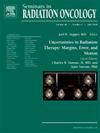Moving Beyond the Standard Pancreatectomy for Pancreatic Adenocarcinoma
IF 3.2
3区 医学
Q3 ONCOLOGY
引用次数: 0
Abstract
This manuscript describes the evolution in the operative management of pancreatic cancer. Early attempts at pancreatic resection were met with daunting peri‑operative outcomes but were fine-tuned to yield today’s established pancreatic resections. Advances in medical therapy, including neo-adjuvant therapy for borderline resectable pancreatic cancers and refined adjuvant regimens, have improved oncologic outcomes and are allowing surgeons to move beyond current anatomic distinctions of resectability. Venous, hepatic artery and celiac axis resection during pancreatectomy are now common vascular operations at specialty centers which have been associated with favorable oncologic outcomes. Recent efforts are addressing locally advanced pancreatic cancer with superior mesenteric artery and/or multivessel involvement using either arterial divestment or arterial resection and reconstruction. An additional consideration in the treatment of pancreatic cancer is the benefit and risks of neoadjuvant radiation in locally advanced cases which has been avoided thus far given concerns regarding the effect of radiation on the vasculature. Therefore, with these improvements in peri‑operative therapy and robust preoperative planning often with the aid of vascular and microvascular surgeons, several centers have been exploring new frontiers in the operative management of locally advanced pancreatic adenocarcinoma.
超越标准胰腺切除术治疗胰腺腺癌
本文描述了胰腺癌手术治疗的进展。早期胰腺切除术的尝试在围手术期的结果令人生畏,但经过微调后,今天已经建立了胰腺切除术。医学治疗的进步,包括边缘可切除胰腺癌的新辅助治疗和精细辅助方案,改善了肿瘤预后,并使外科医生能够超越目前可切除性的解剖差异。在胰腺切除术中进行静脉、肝动脉和腹腔轴切除是目前专业中心常见的血管手术,具有良好的肿瘤预后。最近的努力是解决局部晚期胰腺癌与肠系膜上动脉和/或多血管累及,无论是动脉剥离或动脉切除和重建。胰腺癌治疗的另一个考虑因素是局部晚期病例新辅助放疗的益处和风险,由于考虑到放疗对脉管系统的影响,迄今为止一直避免新辅助放疗。因此,在血管和微血管外科医生的帮助下,随着围手术期治疗的改进和完善的术前计划,一些中心已经在局部晚期胰腺腺癌的手术治疗中探索了新的领域。
本文章由计算机程序翻译,如有差异,请以英文原文为准。
求助全文
约1分钟内获得全文
求助全文
来源期刊
CiteScore
5.80
自引率
0.00%
发文量
48
审稿时长
>12 weeks
期刊介绍:
Each issue of Seminars in Radiation Oncology is compiled by a guest editor to address a specific topic in the specialty, presenting definitive information on areas of rapid change and development. A significant number of articles report new scientific information. Topics covered include tumor biology, diagnosis, medical and surgical management of the patient, and new technologies.

 求助内容:
求助内容: 应助结果提醒方式:
应助结果提醒方式:


